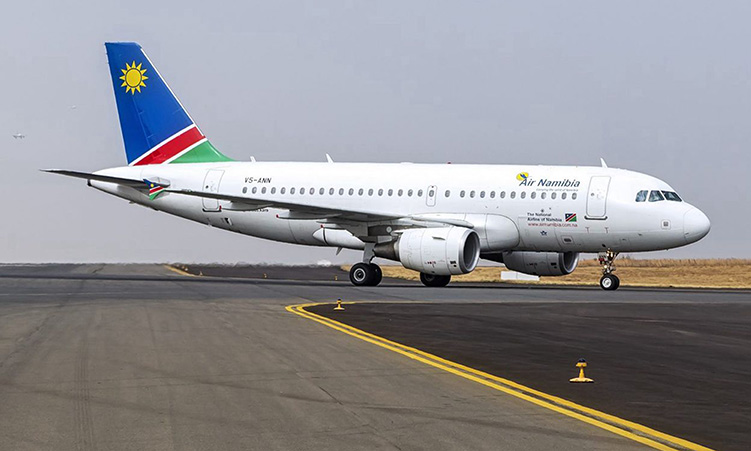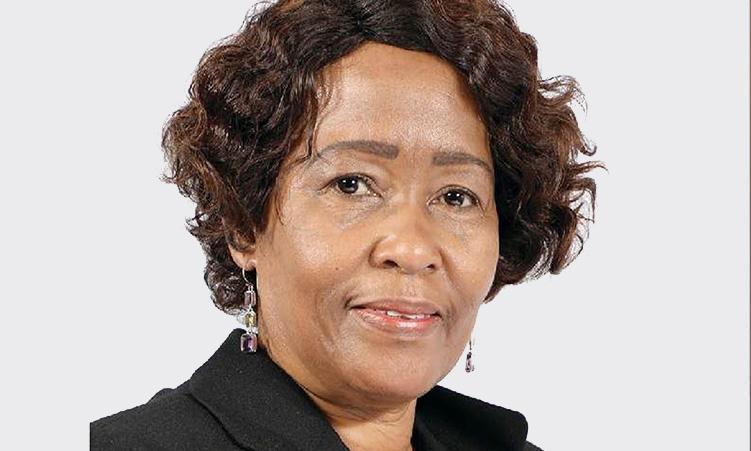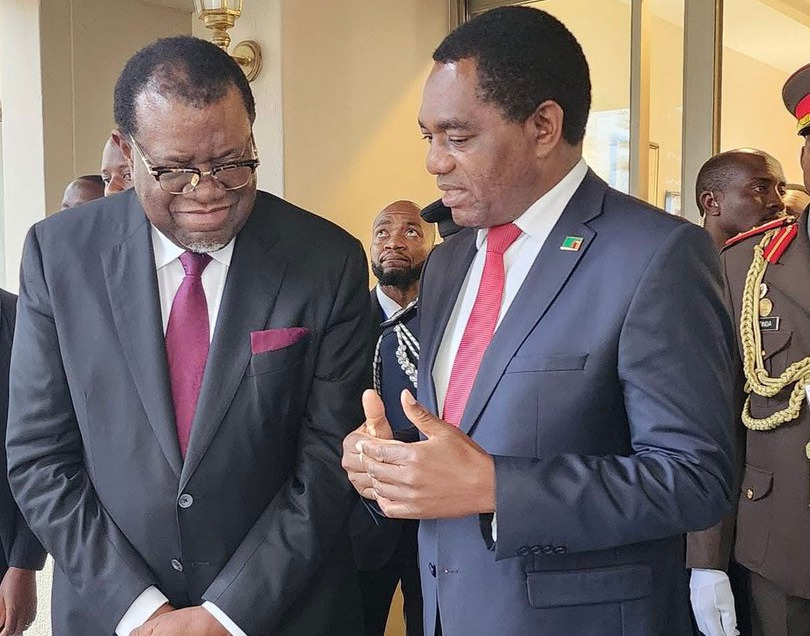TOYAKO, Japan – African leaders yesterday urged the Group of Eight nations to tackle spiking oil and food prices, warning the crisis threatens to aggravate an already desperate plight in the continent.
The call came as leaders of the Group of Eight nations, including US President George W Bush, launched their key annual summit at a spa resort in northern Japan with a special session also attended by seven African leaders. Riot police with shields blocked some 50 protesters who had camped out in meadowlands in drenching rain from getting anywhere near the plush hotel where the world’s top leaders were meeting.Inside, the 15 heads of government and state huddled to discuss aid and development in Africa, as G8 nations came under mounting pressure to live up to their promises to help.German Chancellor Angela Merkel said the African leaders – from Algeria, Ethiopia, Ghana, Nigeria, Senegal, South Africa and Tanzania – demanded action as the global food and fuel crisis has hit the continent’s most vulnerable people the hardest.”The African countries expressed their fears that many of the Millennium Development Goals will be more difficult to reach if commodity prices keep rising like they are at the moment,” she told reporters.Food prices have nearly doubled in three years and set off riots in parts of the developing world, which are also being hit hard by record oil prices – a joint crisis that is the primary focus of G8 leaders in Japan.UN Secretary General Ban Ki-moon, who attended the start of the summit, backed the African leaders and called on G8 nations to live up to their promises to double aid for Africa by 2010.”The world faces three simultaneous crises – a food crisis, a climate crisis and a development crisis,” Ban told reporters.”The three crises are deeply interconnected and need to be addressed as such.”The UN’s flagging Millennium Development Goals were launched in 2000 and involve an eight-point action plan to reduce poverty and improve healthcare and education in Africa by 2015.But G8 nations are falling behind on the goals and skyrocketing food and oil prices have aggravated the problem.Aid groups accused some of the G8 nations – Britain, Canada, France, Germany, Italy, Japan, Russia and the United States – of walking away from earlier commitments.The Oxfam charity accused Canada in particular of working to water down aid pledges, with their position backed by France and Italy.”We can’t let them step away from their promises,” Oxfam activist Max Lawson said.”For rich countries this is peanuts.For African countries this is life or death.”European Commission chief Jose Manuel Barroso offered some relief, proposing the creation of a one-billion-euro (US$1,57 billion) EU fund to fight hunger and help farmers in poor countries with seeds and fertiliser.G8 leaders also pushed for possible sanctions on Zimbabwe, where President Robert Mugabe secured a sixth term last month in a widely condemned election in which his only rival dropped out faced with violence.”I care deeply about the people of Zimbabwe.I am extremely disappointed in the election, which I labelled a sham election,” Bush said after meeting with Tanzanian President Jakaya Kikwete, the head of the African Union.Ban said he would also hold talks with African leaders on the Zimbabwe crisis and press for movement in the fight against climate change.”I hope the US ultimately should take (on) this leadership role.This is what the whole international community expects of the United States,” Ban told AFP in an interview.The United States is the only major industrial nation to shun the Kyoto Protocol as it pushes for more commitment from developing nations.Last year’s G8 summit agreed that the leaders would “consider seriously” at least halving carbon emissions by 2050.On the summit sidelines, Russian President Dmitry Medvedev told British Prime Minister Gordon Brown in their first face-to-face meeting that he wanted to normalise ties that fell to their lowest point since the Cold War last year.”President Medvedev suggested that the two countries focus on returning bilateral relations to a normal state, to the level of a few years ago,” his diplomatic advisor, Sergei Prikhodko, told reporters.Ties between the two countries soured dramatically after Alexander Litvinenko, a former KGB agent turned dissident, died in a London hospital in November 2006 due to extreme radiation poisoning.Nampa-AFPRiot police with shields blocked some 50 protesters who had camped out in meadowlands in drenching rain from getting anywhere near the plush hotel where the world’s top leaders were meeting.Inside, the 15 heads of government and state huddled to discuss aid and development in Africa, as G8 nations came under mounting pressure to live up to their promises to help.German Chancellor Angela Merkel said the African leaders – from Algeria, Ethiopia, Ghana, Nigeria, Senegal, South Africa and Tanzania – demanded action as the global food and fuel crisis has hit the continent’s most vulnerable people the hardest.”The African countries expressed their fears that many of the Millennium Development Goals will be more difficult to reach if commodity prices keep rising like they are at the moment,” she told reporters.Food prices have nearly doubled in three years and set off riots in parts of the developing world, which are also being hit hard by record oil prices – a joint crisis that is the primary focus of G8 leaders in Japan.UN Secretary General Ban Ki-moon, who attended the start of the summit, backed the African leaders and called on G8 nations to live up to their promises to double aid for Africa by 2010.”The world faces three simultaneous crises – a food crisis, a climate crisis and a development crisis,” Ban told reporters.”The three crises are deeply interconnected and need to be addressed as such.”The UN’s flagging Millennium Development Goals were launched in 2000 and involve an eight-point action plan to reduce poverty and improve healthcare and education in Africa by 2015.But G8 nations are falling behind on the goals and skyrocketing food and oil prices have aggravated the problem.Aid groups accused some of the G8 nations – Britain, Canada, France, Germany, Italy, Japan, Russia and the United States – of walking away from earlier commitments.The Oxfam charity accused Canada in particular of working to water down aid pledges, with their position backed by France and Italy.”We can’t let them step away from their promises,” Oxfam activist Max Lawson said.”For rich countries this is peanuts.For African countries this is life or death.”European Commission chief Jose Manuel Barroso offered some relief, proposing the creation of a one-billion-euro (US$1,57 billion) EU fund to fight hunger and help farmers in poor countries with seeds and fertiliser.G8 leaders also pushed for possible sanctions on Zimbabwe, where President Robert Mugabe secured a sixth term last month in a widely condemned election in which his only rival dropped out faced with violence.”I care deeply about the people of Zimbabwe.I am extremely disappointed in the election, which I labelled a sham election,” Bush said after meeting with Tanzanian President Jakaya Kikwete, the head of the African Union.Ban said he would also hold talks with African leaders on the Zimbabwe crisis and press for movement in the fight against climate change.”I hope the US ultimately should take (on) this leadership role.This is what the whole international community expects of the United States,” Ban told AFP in an interview.The United States is the only major industrial nation to shun the Kyoto Protocol as it pushes for more commitment from developing nations.Last year’s G8 summit agreed that the leaders would “consider seriously” at least halving carbon emissions by 2050.On the summit sidelines, Russian President Dmitry Medvedev told British Prime Minister Gordon Brown in their first face-to-face meeting that he wanted to normalise ties that fell to their lowest point since the Cold War last year.”President Medvedev suggested that the two countries focus on returning bilateral relations to a normal state, to the level of a few years ago,” his diplomatic advisor, Sergei Prikhodko, told reporters.Ties between the two countries soured dramatically after Alexander Litvinenko, a former KGB agent turned dissident, died in a London hospital in November 2006 due to extreme radiation poisoning.Nampa-AFP
Stay informed with The Namibian – your source for credible journalism. Get in-depth reporting and opinions for
only N$85 a month. Invest in journalism, invest in democracy –
Subscribe Now!











